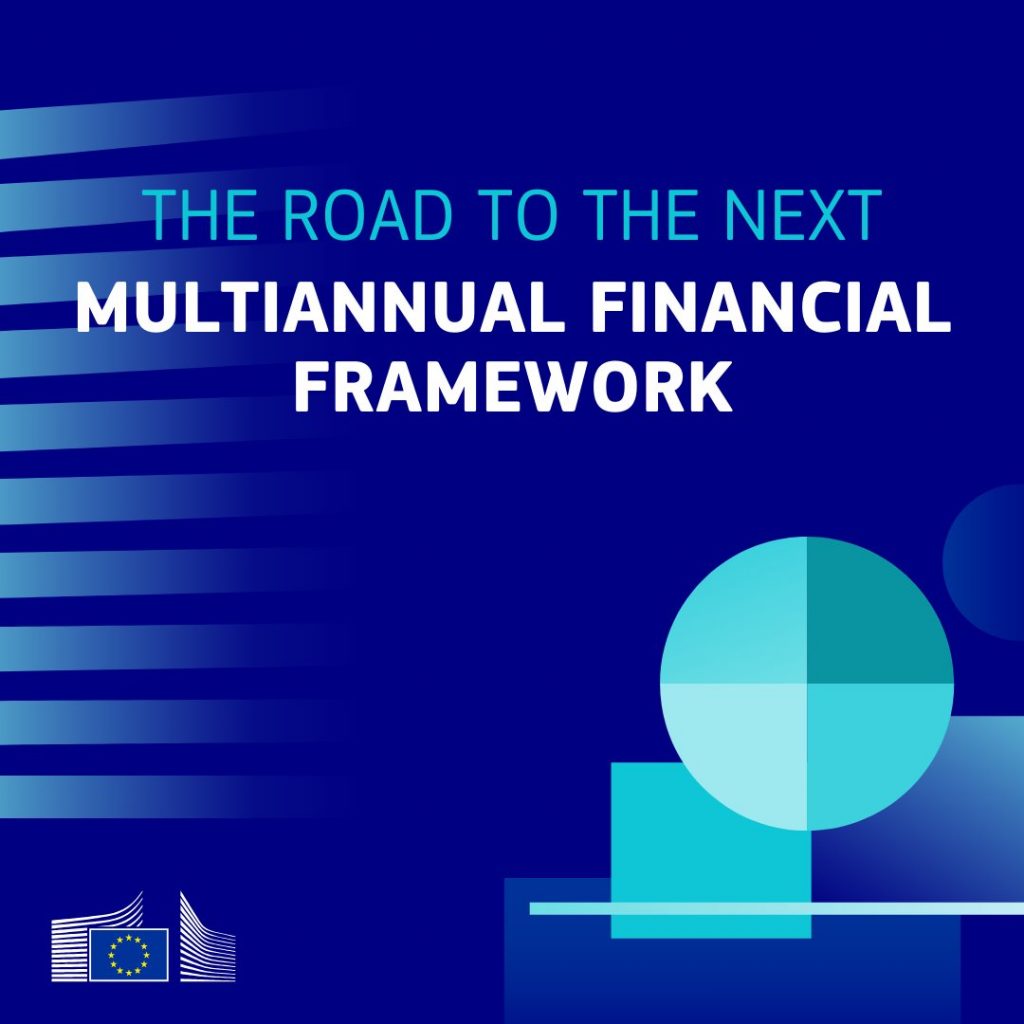
- Category: Library
- 2025-03-14
On the 11th of February 2025, the European Commission published the Communication The road to the next Multiannual Financial Framework, setting out the financial priorities and challenges that the EU must address in the coming years. In this article, we resume our main takeaways from the EC Communication.
A central theme of the Communication is the EU’s need to adapt its budget to meet the Union’s long-term ambitions, particularly the reimbursement of the NextGenerationEU borrowing, which prepayment will begin in 2028. The Commission stresses that new own resources must be introduced alongside stable national contributions to ensure the budget can meet these demands.
Several significant policy challenges are identified in the Communication. The Commission underscores that European competitiveness is hindered by barriers within the Single Market, unfair international competition, high energy prices, skills shortages, and limited access to capital for businesses. These challenges are exacerbated by a slow pace of innovation, particularly in breakthrough technologies. Public investment in research and innovation, is viewed as insufficient in scale, while a gap in private financing for late-stage growth is identified as a key obstacle to long-term economic progress.
Given the ongoing geopolitical challenges, particularly Russia’s invasion of Ukraine, the Commission also identifies the need for stronger defence readiness, including through space assets and military mobility, and for enhanced collaboration among member states to decrease spending and overcome current strategic dependencies from non-European countries. A White Paper on the Future of European Defence is going to be presented by the Commission in March.
Other important priorities include managing migration and securing the EU’s external borders, removing access barriers to the Single Market for SMEs, and supporting the agricultural and rural sectors facing growing difficulties due to unfair global competition, high energy prices, and limited access to capital. The Commission also notes that climate-related risks are increasing, with the cost of natural disasters doubling over the past few decades, and stresses the need for significant investments in climate adaptation and resilience strategies.
The Communication also indicates the need to simplify the EU’s budget and better link it to policies, by making it more flexible to emergencies (like the COVID pandemics) and the uncertainties of the geopolitical context. To simplify access to funding, the Commission suggests creating a single entry point for beneficiaries, making the process more user-friendly and efficient.
Alongside simplification and flexibility, the Commission emphasises the importance of performance-driven funding, and the capital importance of ensuring that not a single euro is spent on activities where the principles of the rule of law are not safeguarded or the protection of the financial interests of the EU not guaranteed.
Moreover, the EU must ensure that financial resources are used effectively, with a stronger focus on integrating key priorities such as climate action, biodiversity and gender equality across all funding programmes.
The Commission proposes a series of changes to make the EU budget more flexible, including the need for national reform plans with an emphasis on regional needs. A new European Competitiveness Fund will be introduced to support strategic sectors and technologies for the EU.
Next steps: the Public Consultations on the next MFF
The Communication outlines the next steps in the process. The European Commission has launched public consultations on the next MFF that are currently open for submission for political institutions, stakeholders, and citizens.
The results of these consultations will be incorporated into the proposal for the next MFF, which is scheduled for presentation in July 2025. An Annual Budget Conference will be held in May 2025 to further engage stakeholders and refine the proposals.
The consultations will run until the 6th of May. Of particular interest for the EU space ecosystem are the following two consultations:
- EU funding for competitiveness: This consultation will explore how EU funding can support the competitiveness of European industries, including the space sector.
- EU funding for civil protection, preparedness and response to crises: This consultation will examine how EU funding can be used to enhance civil protection and response to crises. It includes reference to the use of space-based services as well as natural and human-made threats in space.
These public consultations represent a great opportunity for the space ecosystem to provide input on the future of EU funding for space-related activities.
The other consultations that are also open for submission can be accessed via the following links:
- Implementing EU Funds with Member States and regions
- EU funding for external action
- EU funding for cross-border education, training and solidarity, youth, media, culture, and creative sectors, values, and civil society
- EU funding for the single market, and cooperation between national authorities
- Performance of the EU budget